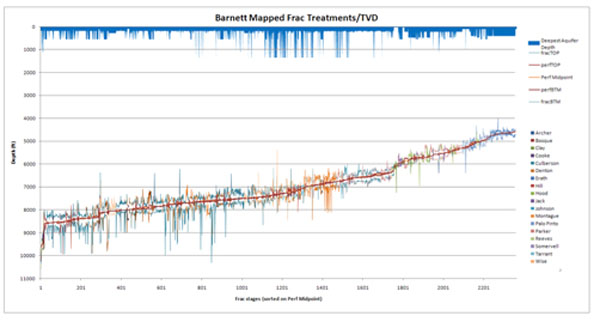Option Partner to Continue Operations at Energy Firm's Texas Oil & Gas Project
Source: Streetwise Reports (01/23/2021)
 The efforts will meet Torchlight Energy Resources' development requirements at Hazel.
The efforts will meet Torchlight Energy Resources' development requirements at Hazel.
read more >
Target Price Raised on Energy Firm Making 'Transformative Acquisition'
Source: Streetwise Reports (01/06/2021)
 The terms and benefits of Earthstone Energy's purchase of an oil and gas company, an "eye-catching act of deal making," are presented in a ROTH Capital Partners report.
The terms and benefits of Earthstone Energy's purchase of an oil and gas company, an "eye-catching act of deal making," are presented in a ROTH Capital Partners report.
read more >
Energy Firm to Combine with Materials, Nanocomposites Company
Source: Streetwise Reports (12/16/2020)
 Torchlight Energy Resources sees the transaction providing its shareholders "access to the multibillion-dollar markets that Metamaterial serves."
Torchlight Energy Resources sees the transaction providing its shareholders "access to the multibillion-dollar markets that Metamaterial serves."
read more >
Oil & Gas Producer Reports on Thailand Operations
Source: Streetwise Reports (12/02/2020)
 Pan Orient Energy Corp. reports on continuing drill operations in Thailand.
Pan Orient Energy Corp. reports on continuing drill operations in Thailand.
read more >
Energy Company Boosts Thailand Oil Production, Offers 'Low Risk Production Growth'
Source: Streetwise Reports (11/19/2020)
 The highlights of Pan Orient Energy's third quarter are presented in a Mackie Research Capital Corp. report.
The highlights of Pan Orient Energy's third quarter are presented in a Mackie Research Capital Corp. report.
read more >
Texas Oil & Gas Firm to Sell Its Stake in Delaware Basin Project
Source: Streetwise Reports (11/18/2020)
 For its interest, Torchlight Energy Resources is to receive $350,000.
For its interest, Torchlight Energy Resources is to receive $350,000.
read more >
Oil & Gas Firm Reports Q3 Operational, Financial Results
Source: Streetwise Reports (11/16/2020)
 Pan Orient Energy and its joint venture partner continue producing and selling oil from its L53 Concession in Thailand, which are funding ongoing exploration work there.
Pan Orient Energy and its joint venture partner continue producing and selling oil from its L53 Concession in Thailand, which are funding ongoing exploration work there.
read more >
Texas Oil & Gas Explorer Completes Fracking of Midland Basin Well
Source: Streetwise Reports (11/11/2020)
 The next step for Torchlight Energy's well at Hazel is flowback, which is to start next week.
The next step for Torchlight Energy's well at Hazel is flowback, which is to start next week.
read more >
Altus Midstream Shares Flow Higher on Q3 Earnings and Plans for $1.50/Share Dividend in Q1/21
Source: Streetwise Reports (11/05/2020)
 Shares of Altus Midstream Co. traded 170% higher after the firm reported Q3/20 financial results and announced plans to pay a quarterly dividend of $1.50 per share beginning in March 2021.
Shares of Altus Midstream Co. traded 170% higher after the firm reported Q3/20 financial results and announced plans to pay a quarterly dividend of $1.50 per share beginning in March 2021.
read more >
Fracking Commences at Oil & Gas Company's Texas Project
Source: Streetwise Reports (10/30/2020)
 The stimulation procedure, being carried out at Torchlight Energy Resources' Hazel asset, will take about one week to complete.
The stimulation procedure, being carried out at Torchlight Energy Resources' Hazel asset, will take about one week to complete.
read more >


























































